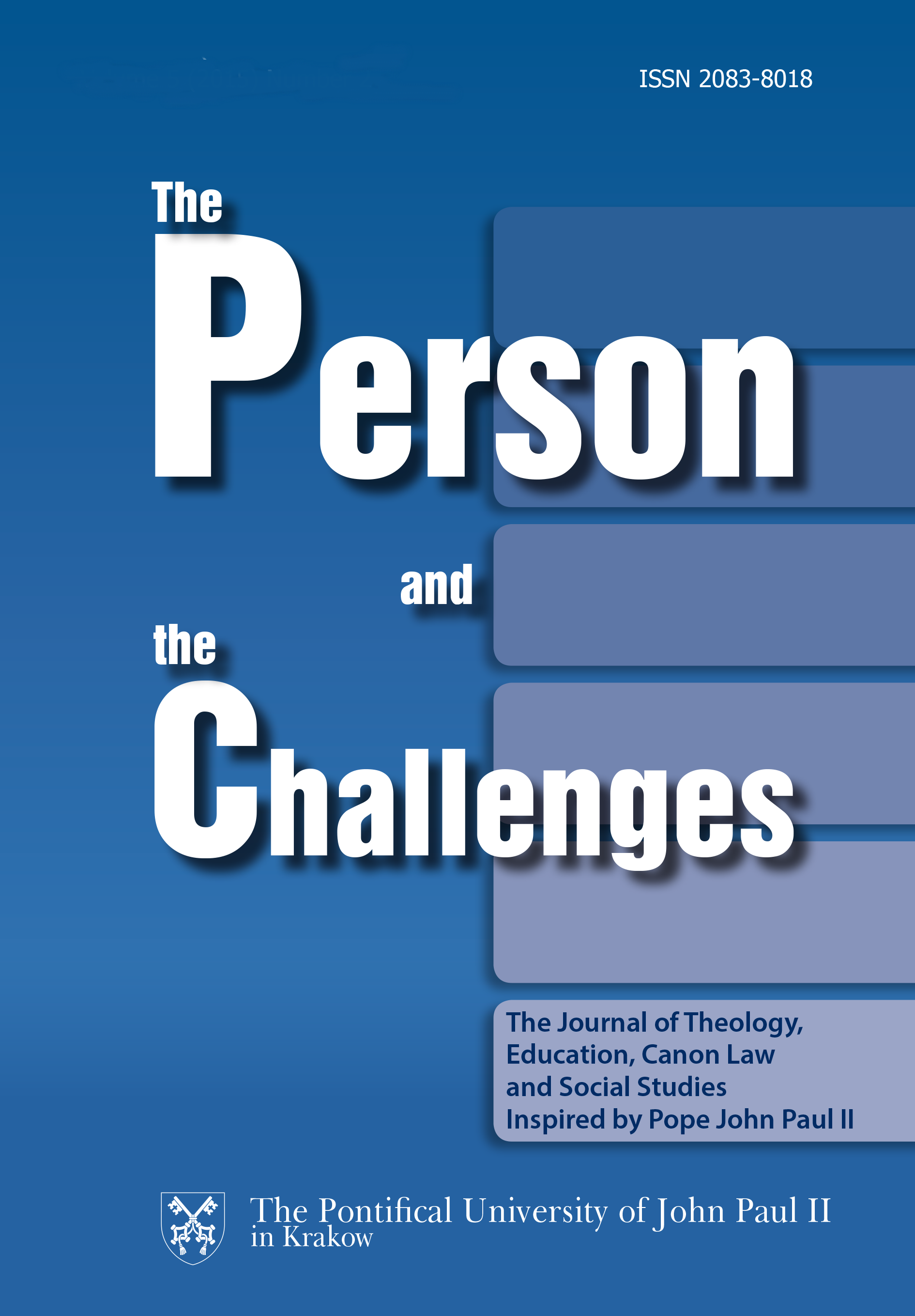Der Kategorische Imperativ als Grundstein der Menschenwürde und Form der Offenbarung Gottes
... bei Immanuel Kant und Karol Wojtyla
The Categorical Imperative as Cornerstone for Human Dignity and Form of Revelation of God in the Work of Immanuel Kant and Karol Wojtyla
Author(s): Zbigniew WaleszczukSubject(s): Christian Theology and Religion, Philosophy
Published by: Wydawnictwo Naukowe Uniwersytetu Papieskiego Jana Pawła II w Krakowie
Keywords: Karol Wojtyła; a person; freedom; God; duty; the categorical imperative; Immanuel Kant
Summary/Abstract: The aim of this analysis is to show the categorical imperative as the cornerstone of human dignity and form of revelation of God in the work of Immanuel Kant and Karol Wojtyla. The suspicious and distant attitude of Christian philosophers, as well as the Catholic Church compared to Kant has a long history. To this day there are only a few researches that analyse from this point of view (Kantian influences) the philosophical thinking of Karol Wojtyla. Though Kant identified the question of God as the cardinal question of our abstract rationality, he believed in God and future life, even in his lifetime he was underestimated, misunderstood and treated with hostility. The experience of duty is”ratio conoscendi” of freedom in Kant and Wojtyla. For the two thinkers the question of freedom is the basic category of there philosophies. Through which authority moral law challenges the human being? Kant and Wojtyla, both philosophers comprehend the highest authority as divine power which formulated the moral law before man. The “holy lawmaker” – God – reveals himself in the human act.
- Issue Year: 3/2013
- Issue No: 1
- Page Range: 7-42
- Page Count: 36
- Language: German

